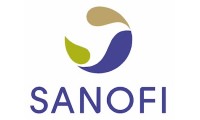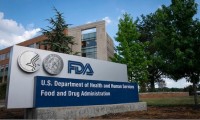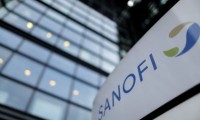-
Beyfortus® Approved in China for the Prevention of Respiratory Syncytial Virus Infections in Infants
- Source: drugdu
- 127
- January 4, 2024
-
After a down year, FDA signs off on a bounty of new meds, including 7 from Pfizer
- Source: drugdu
- 224
- January 4, 2024
-
Sanofi’s ‘SR604 Injection’ Approved in China, ‘Yipian Lida’ Supports Lipid Management with ‘Dual Standards’
- Source: drugdu
- 173
- January 1, 2024
-
AstraZeneca to buy China’s Gracell Biotechnologies in $1.2 billion deal
- Source: drugdu
- 183
- December 28, 2023
-
Big Pharma reworks China strategy, and job cuts are part of it
- Source: drugdu
- 196
- December 27, 2023
-
Previously unrecognized class of antibodies can broadly neutralize multiple virus strains
- Source: drugdu
- 215
- December 25, 2023
-
Glass specialist Schott Pharma touts 2023 sales growth, Serbia expansion and hiring plans
- Source: drugdu
- 133
- December 25, 2023
-
China updates guidelines for vaccination practices
- Source: drugdu
- 156
- December 22, 2023
-
Amid BioNTech legal fight, CureVac takes a loss as German court invalidates patent
- Source: drugdu
- 93
- December 21, 2023
-
Signing ceremony between the Municipality of Bogotá, Colombia and SINOVAC for the official launch of the joint venture BogotáBio
- Source: drugdu
- 146
- December 21, 2023
your submission has already been received.
OK
Subscribe
Please enter a valid Email address!
Submit
The most relevant industry news & insight will be sent to you every two weeks.













